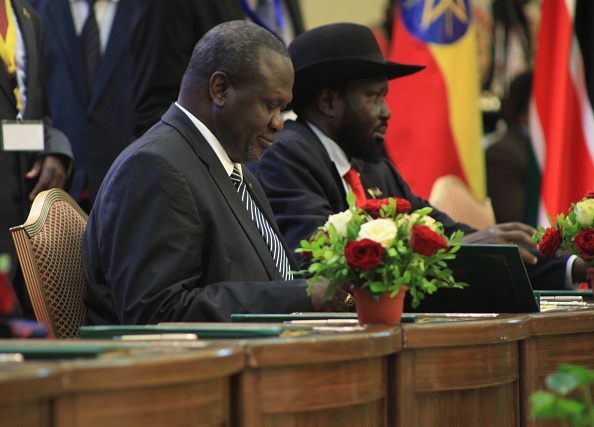
Peace monitor says ongoing dialogue crucial for sustainable peace in South Sudan
South Sudan’s peace monitor said on Wednesday the ongoing national dialogue in the capital bringing diverse communities together to discuss peace and reconciliation will provide solutions to achieving sustainable peace in the youngest nation.
Berhanu Kebede, Chief of Staff of the Reconstituted Joint Monitoring and Evaluation Commission (RJMEC), said the national dialogue conference is a part of the concerted efforts towards finding solutions for sustainable peace in South Sudan.
“I would like to say that the vision of the revitalized peace agreement (R-ARCSS) to lay the foundation for a united, peaceful and prosperous society based on justice, equality, respect for human rights and the rule of law is truly laudable,” Kebede told delegates attending the dialogue in Juba.
“We must therefore all agree that the inclusion and recognition of the voices of the diverse peoples of South Sudan are of utmost importance to the peaceful future of this country,” he added.
Kebede said that the recommendations reached at the end of the conference will be of particular interest to the ongoing peace implementation process that is still stalling.
President Salva Kiir and various opposition groups are yet to complete the training and deployment of the unified forces to take charge of the country’s security during the three-year transitional period.
The parties have also not yet enacted the amended permanent constitution, besides implementing political and economic reforms underlined in chapter four of the R-ARCSS.
Kebede disclosed that the outcome of the dialogue will influence the implementation of Chapter 5 of the peace deal which calls for transitional justice after more than six years of conflict.
“As we continue to implement the agreement in this transitional period, we should appreciate just how the voices of the entire spectrum of South Sudanese society are so important and critical in the implementation,” he said.
“Chapter 5 on transitional justice is essential to atone for crimes committed during the dark days of conflict, the untold human suffering that the agreement acknowledges. In this regard, expeditious establishment of the three transitional justice institutions will be a great leap forward and R-TGoNU support on this matter is critical,” added Kebede.
He also noted that Chapter 6 of the agreement on establishing the permanent constitution is vital, as it will lay a critical fundamental foundation for enduring peace in South Sudan.
“The Preamble of the R-ARCSS duly recognizes that the parties to the agreement are determined to compensate our people by recommitting ourselves to peace and constitutionalism and not to repeat mistakes of the past,” said Kebede.
“When the Constitution-making process is fully underway, reaching communities at grass-root level and understanding the perspectives of all peoples of South Sudan, irrespective of their backgrounds or political beliefs and affiliations, will be a critical ingredient in establishing the solid foundation that Chapter 6 intends to lay,” he disclosed.
South Sudan descended into conflict in December 2013, killing tens of thousands and displacing millions both internally and externally.






